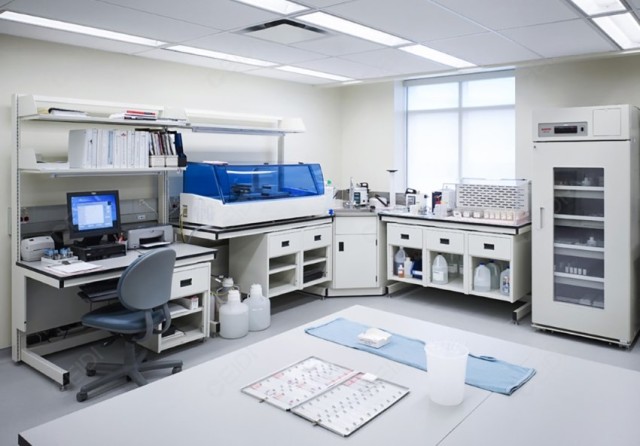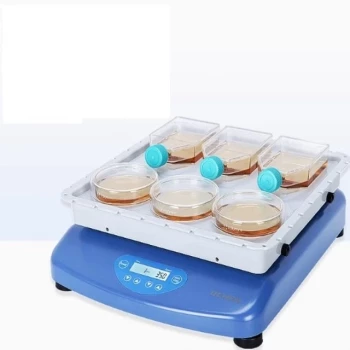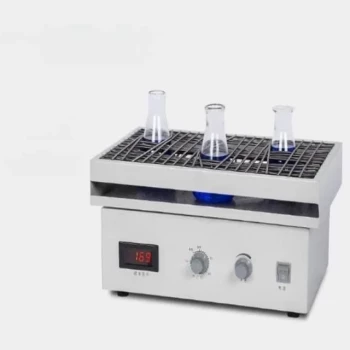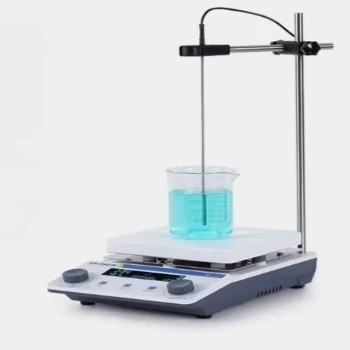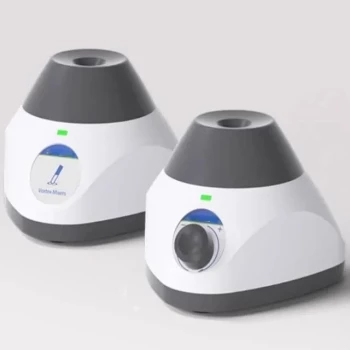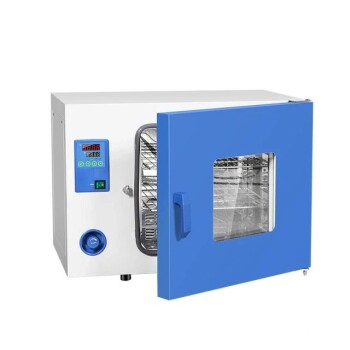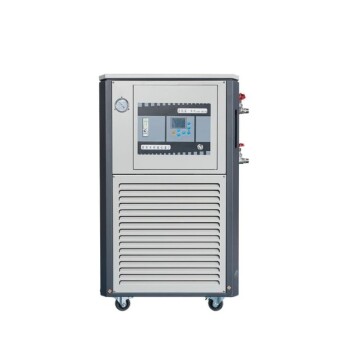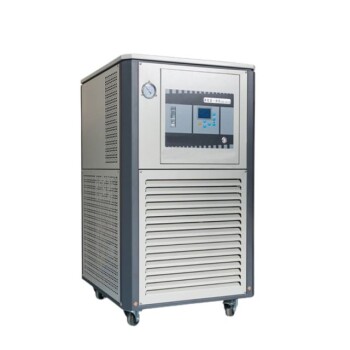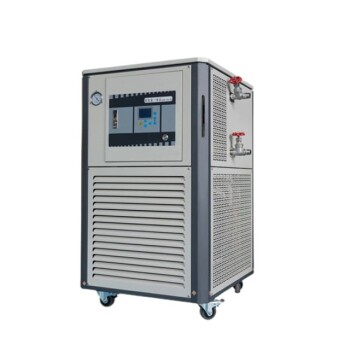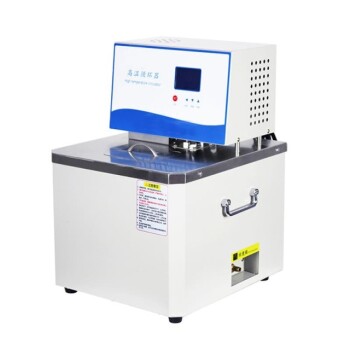Temperature-Controlled Incubators
Biochemical Incubator
The biochemical incubator is equipped with a sophisticated two-way temperature control system, enabling both refrigeration and heating capabilities. This dual functionality ensures precise temperature regulation, which is crucial for various laboratory applications. The incubator's temperature-controllable feature allows it to maintain consistent conditions, making it indispensable for low-temperature constant temperature tests, culture tests, and environmental tests.

In low-temperature constant temperature tests, the biochemical incubator ensures that samples remain at a stable, predetermined temperature, which is essential for accurate data collection and analysis. For culture tests, the incubator provides an optimal environment for the growth and proliferation of microorganisms, facilitating detailed studies on their behavior and characteristics. Additionally, in environmental tests, the incubator simulates various environmental conditions, helping researchers understand how different factors affect biological processes.
The versatility of the biochemical incubator is further highlighted by its application in a wide range of scientific disciplines, including microbiology, biochemistry, and environmental science. Its robust design and precise control mechanisms make it a vital tool in both academic and industrial research settings.
Mold Incubator
Mold incubators are specialized laboratory devices designed to foster the growth of organisms and plants by meticulously controlling environmental conditions within a closed space. These incubators are essential for various biological and microbiological research applications, where precise control over temperature and humidity is crucial.

To facilitate optimal growth conditions, mold incubators are equipped with advanced systems that allow for the fine-tuning of both temperature and humidity levels. This precision is vital for ensuring that mold cultures can develop within a relatively short timeframe, typically ranging from 4 to 6 hours. The ability to set and maintain these specific conditions not only accelerates the growth process but also ensures uniformity and consistency in the experimental results.
Moreover, the closed environment provided by mold incubators helps to prevent contamination from external factors, which is paramount in maintaining the integrity of the research data. This controlled setting is particularly advantageous in studies involving sensitive organisms or those requiring a sterile environment.
In summary, mold incubators are indispensable tools in the laboratory, offering a reliable and efficient means to cultivate organisms and plants under precisely controlled conditions, thereby supporting a wide array of scientific investigations.
Carbon Dioxide Incubator
The carbon dioxide incubator is an advanced laboratory device specifically designed for the in vitro culture of cells and tissues. It meticulously replicates the natural growth environment of cells/tissues within organisms, thereby facilitating optimal conditions for their proliferation and study.

This specialized incubator maintains a controlled atmosphere that includes not only precise temperature and humidity levels but also a regulated CO2 concentration. This is crucial for maintaining the pH balance necessary for cell viability and growth. The device is equipped with sophisticated sensors and control systems that ensure these parameters remain stable and within the optimal range for the specific type of cell or tissue being cultured.
Moreover, the carbon dioxide incubator is often used in conjunction with other laboratory equipment to create a comprehensive system for biological research. For instance, it can be integrated with automated feeding systems, imaging technologies, and data logging tools to provide a holistic approach to cell culture studies. This integration not only enhances the efficiency of the research process but also ensures the accuracy and reliability of the experimental outcomes.
In summary, the carbon dioxide incubator stands out as a vital tool in the arsenal of laboratory equipment, offering unparalleled precision and control for in vitro cell and tissue culture. Its ability to simulate the intricate conditions of a living organism makes it indispensable for researchers in fields such as biotechnology, pharmacology, and regenerative medicine.
Electric Constant Temperature Incubator
The electric constant temperature incubator stands as a cornerstone in the realm of scientific research and industrial production, particularly in sectors such as medical and health, pharmaceuticals, biochemistry, and agricultural science. This versatile equipment is meticulously designed to facilitate bacterial culture, fermentation, and constant temperature testing, ensuring precise environmental conditions that are essential for the successful cultivation and analysis of various biological entities.

In the medical and health sector, the electric constant temperature incubator plays a critical role in the growth and maintenance of bacterial cultures, which are indispensable for diagnostic testing and vaccine development. Similarly, in the pharmaceutical industry, it aids in the fermentation processes necessary for the production of antibiotics and other medicinal compounds. The biochemistry and agricultural science fields also benefit from its ability to maintain stable temperatures, enabling consistent and reliable experimental outcomes.
The electric constant temperature incubator is not merely a passive container for biological samples; it is an active participant in the scientific process, ensuring that the conditions within are perfectly suited to the needs of the organisms being studied. This precision is achieved through advanced temperature control mechanisms, which can maintain a consistent environment regardless of external fluctuations, thereby enhancing the reproducibility and reliability of experimental results.
Moreover, its application extends beyond just maintaining temperature; it also supports a variety of specialized incubation needs, such as those involving light, humidity, and even controlled gas environments. This adaptability makes the electric constant temperature incubator an invaluable tool in modern laboratories, where the demand for accurate and consistent results is paramount.
Specialized Incubators
Light Incubator
The light incubator is a specialized piece of laboratory equipment designed for the cultivation and breeding of a diverse array of microorganisms, including bacteria and molds. Unlike other incubators that often rely solely on temperature control, the light incubator integrates both temperature and light control, offering a more comprehensive environment for microbial growth.

The inner tank of a light incubator is typically constructed from either engineering plastic or stainless steel. This choice of materials is crucial for several reasons:
-
Engineering Plastic: Offers excellent chemical resistance, making it ideal for containing various microbial cultures without the risk of chemical reactions. It also provides a smooth surface that is easy to clean and maintain, which is essential for preventing cross-contamination between cultures.
-
Stainless Steel: Known for its durability and resistance to corrosion, stainless steel ensures that the incubator can withstand the rigors of frequent use in a laboratory setting. It also facilitates efficient heat distribution, which is vital for maintaining consistent temperatures within the incubator.
These materials not only ensure the longevity and functionality of the incubator but also contribute to the overall sterility and efficiency of the cultivation process.
Artificial Climate Chamber
The artificial climate chamber serves as a versatile laboratory tool, facilitating a wide array of biological and environmental studies. Its primary applications include germination and seedling cultivation, where it provides controlled conditions that mimic natural growth environments, thereby enhancing the success rate of plant propagation. Additionally, the chamber is instrumental in tissue and microorganism cultivation, offering a stable and sterile environment that supports the growth of various biological specimens.

For researchers studying insects and small animals, the artificial climate chamber provides a controlled habitat that can simulate different climatic conditions, aiding in the observation and analysis of behavioral and physiological responses. This capability extends to water analysis, where the chamber is used to determine the Biochemical Oxygen Demand (BOD), a critical parameter in assessing water quality.
Beyond these specific uses, the artificial climate chamber is employed in general artificial climate tests, where it replicates various environmental conditions to evaluate the performance and durability of materials, products, and systems under different climate scenarios. This broad applicability makes it an indispensable asset in both academic research and industrial applications.
Constant Temperature and Humidity Chamber
The constant temperature and humidity test chamber is an indispensable tool in material science and engineering, designed to simulate a wide range of environmental conditions. This chamber allows researchers to evaluate the performance of materials under various temperature and humidity settings, thereby testing their resilience to conditions such as heat, cold, dryness, and moisture.

By subjecting materials to controlled environmental stresses, scientists can predict how these materials will behave in real-world scenarios, which is crucial for industries ranging from automotive to aerospace. For instance, a material that performs well under extreme heat and humidity conditions in the laboratory is more likely to maintain its integrity in tropical climates or during prolonged exposure to direct sunlight.
The versatility of the constant temperature and humidity chamber extends beyond just material testing. It is also employed in biological research, where it can simulate the environmental conditions necessary for the growth and study of microorganisms, plants, and other biological specimens. This capability makes it a valuable asset in fields such as agriculture, pharmaceuticals, and environmental science.
In summary, the constant temperature and humidity test chamber is not merely a piece of equipment; it is a sophisticated tool that facilitates critical research and development activities across multiple scientific disciplines.
Microbial Incubator
The microbial incubator is a specialized, box-type device designed to cultivate a diverse array of microorganisms, including bacteria, molds, and plant/animal cells. This versatile tool is essential in biological research for simulating the optimal growth conditions required by these organisms.

Key environmental parameters such as temperature, humidity, light, carbon dioxide levels, and pH are meticulously controlled within the incubator. This precise regulation ensures that the internal environment mimics the natural habitats of the organisms being studied, thereby promoting their growth and reproduction. For instance, bacteria typically thrive in warm, moist environments, while molds may require specific humidity levels and light conditions to proliferate.
The microbial incubator's ability to maintain a stable and controlled environment is crucial for experiments that require consistent results. Whether studying the effects of temperature on bacterial growth or the impact of carbon dioxide levels on plant cell cultures, the incubator provides a reliable platform for such investigations.
In summary, the microbial incubator stands as a cornerstone in laboratory settings, offering researchers the means to cultivate and study a wide range of microorganisms under precisely controlled conditions.
Anaerobic Incubator
The anaerobic incubator is specifically designed for the cultivation of anaerobic organisms, which are microorganisms that thrive in environments devoid of oxygen. These incubators create a controlled, oxygen-free environment by systematically removing or reducing oxygen levels within the chamber. This is achieved through various methods, such as the use of gas mixtures that exclude oxygen or the use of vacuum systems to remove oxygen from the chamber.

These incubators not only provide strict anaerobic conditions but also maintain a constant temperature, which is crucial for the growth and survival of anaerobic organisms. The temperature control system ensures that the internal environment remains stable, mimicking the natural habitats of these organisms. This dual functionality—anaerobic conditions and constant temperature—makes anaerobic incubators indispensable in laboratories where the study of anaerobic bacteria and other microorganisms is a priority.
The design of an anaerobic incubator is both systematic and scientific, featuring a well-organized working area that allows for precise control and monitoring of the conditions within the chamber. This includes advanced sensors and control systems that continuously monitor and adjust the levels of oxygen and temperature, ensuring that the conditions remain optimal for the organisms being cultivated. The systematic layout also facilitates ease of use, allowing researchers to perform their experiments efficiently and with minimal disturbance to the delicate anaerobic environment.
Oscillating Incubator
An oscillating incubator is a specialized piece of laboratory equipment designed for the cultivation of biological samples. Unlike traditional incubators that maintain a static environment, oscillating incubators incorporate a gentle rocking motion to simulate natural conditions, such as the movement of water in a natural habitat. This motion is crucial for the growth and development of certain types of cells, particularly those that require agitation to facilitate nutrient distribution and waste removal.

The primary function of an oscillating incubator is to provide a controlled environment that supports the growth of biological samples. This includes maintaining precise temperature, humidity, and CO2 levels, which are essential for the viability and proliferation of cells. The oscillation feature adds an additional layer of complexity to the incubation process, ensuring that the samples are not only kept at optimal conditions but also subjected to gentle, consistent movement.
Oscillating incubators are particularly useful in fields such as microbiology, cell biology, and biotechnology. They are often used for the cultivation of bacteria, fungi, and other microorganisms that benefit from or require a dynamic environment. The ability to control the frequency and amplitude of the oscillation allows researchers to tailor the incubation conditions to the specific needs of their samples, thereby enhancing the accuracy and reliability of their experiments.
In summary, an oscillating incubator is not just a static environment provider but a dynamic system that simulates natural conditions to foster the growth of biological samples. Its unique features make it an indispensable tool in various laboratory settings, particularly where the interaction between cells and their environment plays a critical role in the research outcomes.
Related Products
- Laboratory Oscillating Orbital Shaker
- Laboratory Multifunctional Small Speed-Adjustable Horizontal Mechanical Shaker for Lab
- Laboratory Small Constant Temperature Heated Magnetic Stirrer Heater and Stirrer
- Laboratory Disc Rotary Mixer for Efficient Sample Mixing and Homogenization
- Laboratory High Pressure Steam Sterilizer Vertical Autoclave for Lab Department
Related Articles
- Understanding Isostatic Pressing: Process, Benefits, Limitations, and Applications
- Comprehensive Guide to Isostatic Pressing: Types, Processes, and Features(3)
- Basic Laboratory Centrifuge Equipment
- The Art of the Shutdown: Engineering Reliability in Electrochemical Cells
- What is Isostatic Pressing Machine
